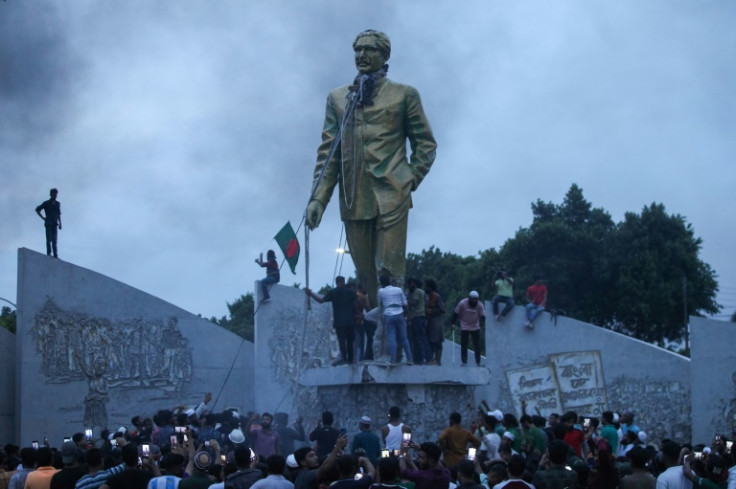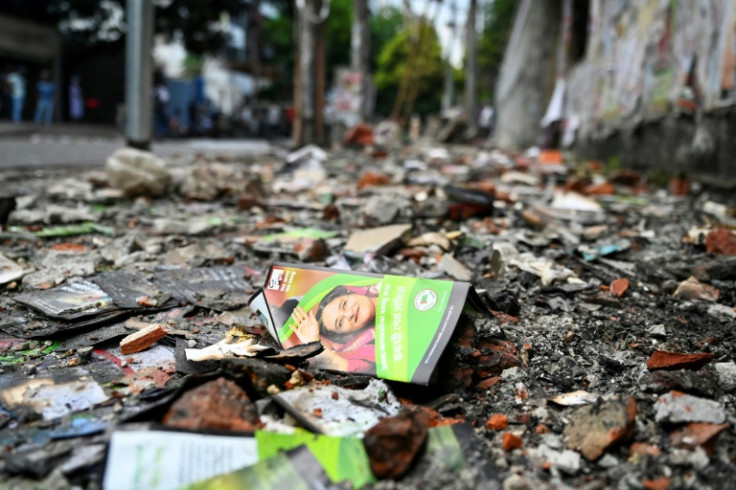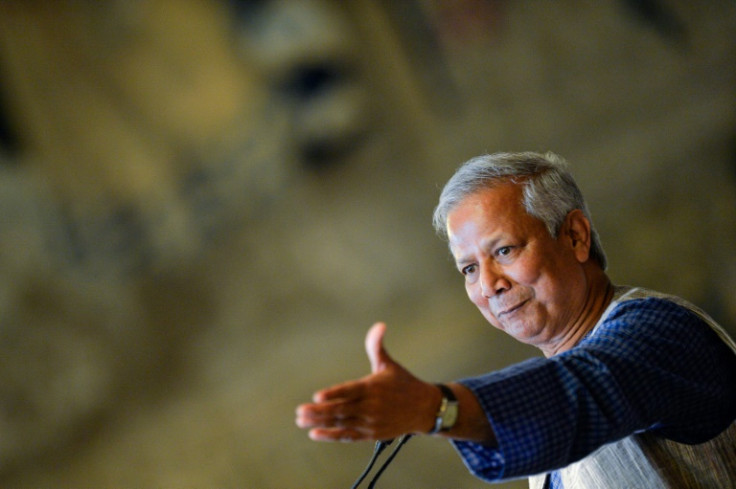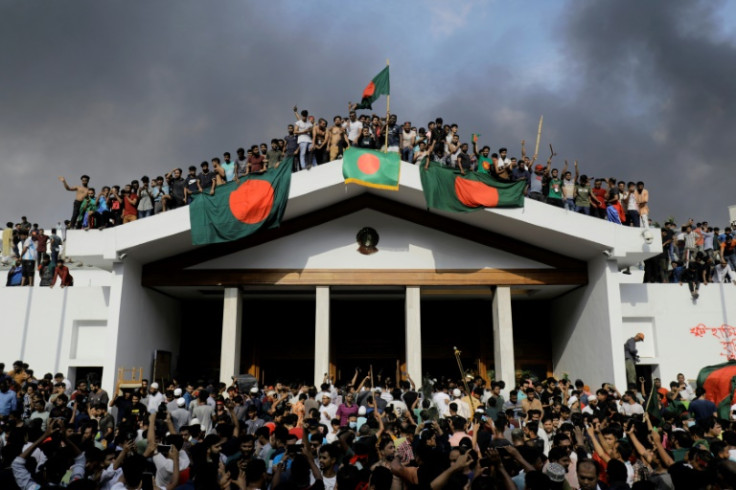Bangladesh Nobel Winner Yunus To Lead Interim Govt

Bangladesh's Nobel-winning microfinance pioneer Muhammad Yunus will lead an interim government after mass protests forced longtime prime minister Sheikh Hasina to flee, the presidency announced Wednesday.
The appointment came quickly after student leaders called on the 84-year-old Yunus -- credited with lifting millions out of poverty in the South Asian country -- to lead.
The decision was made in a meeting with President Mohammed Shahabuddin, the heads of the army, navy and air force, and student leaders.
"(They) decided to form an interim government with Professor Dr Muhammad Yunus as its chief," Shahabuddin's office said in a statement.
"The president has asked the people to help ride out the crisis. Quick formation of an interim government is necessary to overcome the crisis."
Yunus will have the title of chief advisor, according to Haid Islam, one of the leaders of Students Against Discrimination who participated in the meeting.
Shahabuddin agreed that the interim government "will be formed within the shortest time" possible, Islam told reporters, describing the meeting as "fruitful".
However, there were few other details about the planned government, including the role of the military.
Yunus, who is currently in Europe and is due to return to Dhaka on Thursday afternoon, told AFP he was willing to lead the interim government.
"If action is needed in Bangladesh, for my country and for the courage of my people, then I will take it," he said in a statement.
The veteran academic wrote in The Economist that he wanted to "ensure a free and fair election is held within a few months", calling on a new generation of leaders to step forward.
"Above all, we need young people who are not obsessed with settling scores, as too many of our previous governments were," Yunus wrote.
Hasina, 76, who had been in power since 2009, resigned on Monday as hundreds of thousands of people flooded the streets of Dhaka demanding she stand down.
Monday's events were the culmination of more than a month of unrest, which began as protests against a plan for quotas in government jobs but morphed into an anti-Hasina movement.
Hasina, who was accused of rigging January elections and widespread human rights abuses, deployed security forces to quash the protests.
Hundreds of people were killed in the crackdown, but the military turned against Hasina on the weekend and she was forced to flee in a helicopter to neighbouring India.
Army chief General Waker-Uz-Zaman said on Sunday it was "time to stop the violence".
The military has since acceded to a range of other demands from the student leaders, aside from Yunus's appointment.
The president dissolved parliament on Tuesday, another demand of the student leaders and the major opposition Bangladesh National Party (BNP).
The head of the police force, which protesters have blamed for leading Hasina's crackdown, was sacked on Tuesday, the president's office said in the statement announcing Yunus as leader.
Ex-prime minister and BNP chairperson Khaleda Zia, 78, was also released from years of house arrest, a presidential statement and her party said.
Political prisoners have been released, including Michael Chakma, an Indigenous activist incarcerated in a secret prison since 2019, his United People's Democratic Front party said on Wednesday.
And the military reshuffled several generals, demoting some seen as close to Hasina, and sacking Ziaul Ahsan, a commander of the feared Rapid Action Battalion paramilitary force.
Since Tuesday, streets in the capital have been largely peaceful -- with shops opening and international flights resuming at Dhaka airport -- but government offices remained mostly closed.
Millions of Bangladeshis had flooded the streets to celebrate after Hasina's departure -- and jubilant crowds also stormed and looted her official residence.
"We have been freed from a dictatorship," said Sazid Ahnaf, 21, comparing the events to the independence war that split the nation from Pakistan more than five decades ago.
Police said mobs had launched revenge attacks on Hasina's allies and their own officers, and also freed more than 500 inmates from a prison.
Monday was the deadliest day since protests began, with at least 455 people killed since early July, according to an AFP tally based on police, government officials and hospital doctors.
Protesters broke into parliament and torched TV stations. Others smashed statues of Hasina's father, Sheikh Mujibur Rahman, Bangladesh's independence hero.
Some businesses and homes owned by Hindus -- a group seen by some in the Muslim-majority nation as close to Hasina -- were also attacked.
Neighbouring India and China, both key regional allies of Bangladesh, have called for calm.



© Copyright AFP 2025. All rights reserved.





















